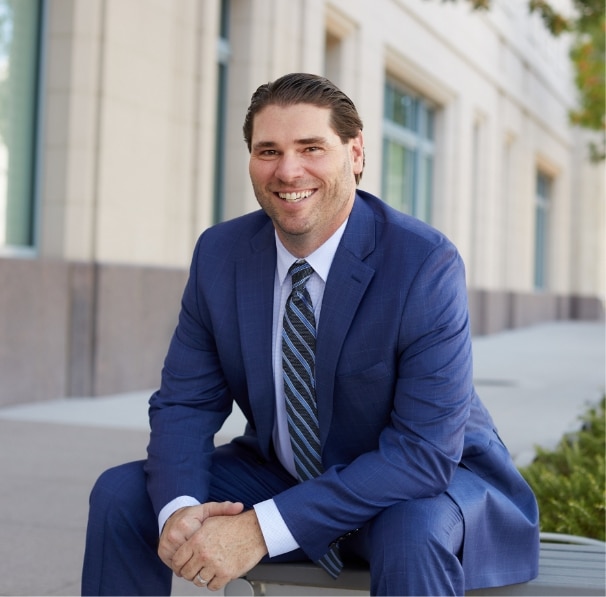Whether you’re zip lining in Hawaii or riding dune buggies in the Las Vegas desert, many vacation activities require you to sign a waiver. But what happens if you get hurt during a vacation? Are you stuck with the bills? Can you still sue? You can still sue the service provider even after signing a waiver. This is especially true if your accident and ensuing injuries resulted from the provider’s gross or willful negligence.
Table of Contents
Toggle
Experienced personal injury lawyers are familiar with situations in which signing a waiver does not protect a business from liability. Retaining a personal injury lawyer shortly after getting injured during a vacation activity can help maximize your chances of recovering compensation from the liable party, even if you had signed a liability waiver.
At Burk Injury Lawyers, we understand the financial and psychological suffering endured by people injured during vacation. Our seasoned lawyers have successfully represented many injured vacationers even after they had signed a liability waiver. We can do it for you too. Call us at 702-620-2020 to schedule a free consultation.
How Waivers Impact Your Right to File an Injury
A waiver is a written legal agreement between a service provider and a client. A signed waiver proves that you voluntarily participated in a recreational activity with full knowledge of the risks. In other words, you willingly gave up your right to sue the company in the event of an accident.
A liability waiver must meet two requirements to be enforceable. The first requirement is that you must have “actual knowledge of the risks” involved. The second one is that you must voluntarily assume the risk. The law assumes that individuals signing the document are familiar with the risks and voluntarily expose themselves to those risks.
Nevada follows the “Parol of Evidence” legal doctrine when interpreting the terms of legal contracts. This rule is based on the principle that a written contract is more reliable than an oral agreement. Any extraneous information cannot be included in its interpretation. The contract is the “final agreement” between the involved parties. No additional information may be inferred, and the waiver is unambiguous. A liability release only protects a company against injuries caused by ordinary negligence. That’s when the business fails to act reasonably to address safety risks.
Nevada’s Comparative Negligence Law
Waivers contain fine details and legal terms that can be challenging to interpret. The court allows the jury to consider all the facts and circumstances to decide whether the waiver limits a company’s vacation accident liability.
Courts classify the assumption of risk in vacation waivers under comparative negligence. Under Nevada’s modified comparative negligence law, victims can recover damages even if they’re partially at fault. However, victims can only receive compensation if they are 50% or less at fault.
An injury lawyer can evaluate your case and determine whether the comparative negligence rule will apply. If so, the lawyer will compile strong evidence and try to reduce your percentage of liability as much as possible. The lawyer knows how to prove negligence and how much to ask for in a personal injury settlement.
When a Waiver May Not Protect Companies from Liability
Express liability release protects companies from injury claims arising from ordinary negligence. That doesn’t mean you can’t sue after signing a waiver. Some circumstances may render the agreement invalid. They include:
Gross Negligence or Willful Misconduct
A business is not protected if you’re hurt because of gross negligence. Such negligence occurs when a business fails to exercise the slightest diligence in its legal duty of care to its clients. For example, a skydiving company may improperly pack a parachute by failing to follow the recommended packing procedure. If a skydiver gets hurt or dies wrongfully because of a jammed parachute, a waiver won’t protect the company from a lawsuit.
Lack of Informed Consent by Participant
A contract is only valid if it informs the participant of the actual risks involved in an activity. The participant must appreciate and willingly accept the risks. Signing the release means the signatory gives informed consent. If the contract contains incorrect verbiage or omits critical statements, the signee may not have full actual knowledge of the risks. In such a case, you may sue after signing a waiver.
Why You Should Consult an Injury Lawyer After a Vacation Accident
Many people sign liability releases, hoping that everything goes well during an activity. If you signed a waiver and got injured, you may have the right to file a lawsuit. It’s crucial to consult an injury lawyer for waiver cases. An attorney knows how a personal injury lawsuit works for victims. He or she can fight for your rights.
An experienced personal injury lawyer can help you in an injury case involving a signed waiver by:
Analyzing the Terms of Agreement
Your personal injury lawyer will retrieve a copy of the waiver and analyze the terms. The lawyer will challenge the validity of the waiver if it contains unclear or ambiguous language.
Investigating the Incident
Your lawyer will listen to your account of the incident and conduct independent investigations to gather more evidence. Some pieces of evidence the lawyer will collect and analyze include the following:
- A copy of the signed contract
- Injury-related medical documents
- Police reports and eyewitness accounts
- Photos and videos of the injuries and accident scene
- Evidence that shows negligence or willful misconduct
If necessary, your lawyer may collaborate with other professionals to gather expert opinions on the case. Examples of expert witnesses include medical professionals and accident reconstruction experts. Their knowledge in their respective fields can strengthen your claim.
Get personal injury lawyers at Burk Injury Lawyers involved if you or a loved one was injured during a vacation activity. We will carefully inspect the liability waiver you signed and discuss your available legal options for holding the service provider legally and financially accountable. Contact us today for legal advice and aggressive representation.



